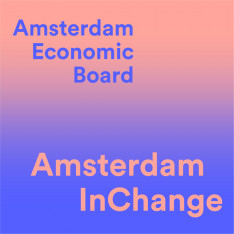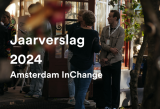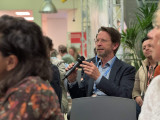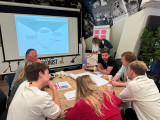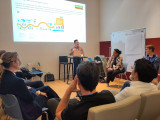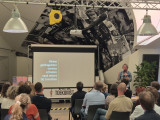An Innovative Summer: Tips from Amsterdam InChange

Summer wouldn’t be complete without our annual Innovative Summer tips! This season, soak up the sunshine and get inspired by everything the city has to offer. From exploring the future of energy to dancing on a science museum rooftop, Amsterdam is bursting with opportunities to experience innovation, sustainability, and creativity. Here are six highlights from Amsterdam InChange to help make your summer not just memorable, but also meaningful.
1. Kwaku Festival x Innofest
Innofest is teaming up with Kwaku Festival to turn the festival atmosphere into a testing ground for sustainable innovations. For four weeks, Kwaku brings together music, dance, art, and food rooted in the Surinamese community and enriched by influences from the Caribbean, Africa, and beyond. This summer, Innofest will be testing two of its innovations live at the festival. Curious to find out which ones? Check them out on their website.
2. SAIL Amsterdam
Experience history and the future on open water. Every five years, the world’s largest tall ships dock in Amsterdam for SAIL: a celebration of maritime heritage and innovation. Due to COVID, it’s now been ten years since the last edition. In August 2025, SAIL returns not only with beautiful ships but also with important themes like the energy transition and green logistics.
3. Music on the Roof of NEMO
Spend your summer evenings on NEMO’s rooftop, where live music meets stunning city views and a dose of science. The rooftop becomes a spot for concerts, interactive exhibits, and inspiring ideas around energy and sustainability. A good mix of culture, curiosity, and summer vibes.
4. Climate festival at De Hortus
Get active in the climate conversation. Set in the lush botanical gardens of De Hortus, the Climate festival offers workshops, talks, and art installations focused on climate change and ecological resilience. It's a moment to reconnect with nature and find actionable hope.
5. Waag Open: Energy of the Future
Reimagine how we power our lives. Hosted by Waag Futurelab, this edition of Waag Open explores the future of energy. You'll go on an excursion to the Buiksloterham neighborhood, where all aspects of the energy transition come to life. Discover how deep the boreholes for thermal energy storage go, and learn exactly where the heat for the district heating system comes from.
6. The Digital Fabric of Political Violence
Discover how technology shapes conflict. At Pakhuis de Zwijger, this event explores how digital tools and social platforms contribute to modern political violence. Through research and open dialogue, you’ll learn more about the intersection of tech, power, and resistance.
Do you have any other interesting tips? Share them below!
